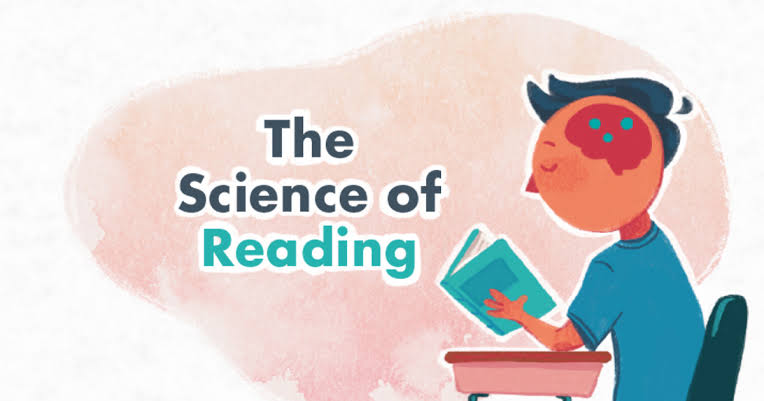
Reading is more than just a pastime; it is a scientifically proven method to alleviate and anxiety. By engaging our minds in stories or absorbing knowledge, reading offers an escape from daily worries, calms the mind, and improves overall mental health. This article explores how reading promotes relaxation, emotional balance, and cognitive health, supported by research and practical tips.
The Physical Response: How Reading Affects the Body
When you sit down with a book, your body responds in a way that’s similar to meditation. Here’s how:
- Heart Rate Reduction: Within just six minutes of reading, studies have shown that your heart rate can slow down. This is because the mind begins to focus on the story or content, which shifts attention away from stressful thoughts.
- Lowered Cortisol Levels: Reading reduces cortisol, the stress hormone. Excessive cortisol can cause anxiety, fatigue, and other health issues. A peaceful reading session helps restore hormonal balance.
- Improved Breathing Patterns: As you get engrossed in a book, your breathing often becomes slower and more rhythmic, mimicking the effects of deep breathing exercises.
The Mental Connection: How Reading Calms the Mind
- Distraction from Negative Thoughts: Reading acts as a healthy distraction. When you dive into a story, your brain shifts its focus from real-world worries to the fictional or factual world within the pages. This break gives your mind the rest it needs.
- Engagement of the Imagination: Your brain is a wonderful machine, constantly weaving images and scenarios as you read. This imaginative engagement reduces overthinking
- and promotes creative problem-solving.
- Mindfulness and Presence: When you’re truly absorbed in a book, you’re practicing mindfulness without even realizing it. You’re living in the present moment, immersed in the words, leaving behind worries of the past or future.
- Emotional Healing: The Role of Literature
- Empathy Building: Reading fiction, especially stories with complex characters, can increase empathy. By understanding the struggles and emotions of others, you develop a broader perspective, which can help you process your own feelings.
- Validation of Emotions: Have you ever read a passage and thought, “This is exactly how I feel!”? Books can give you a sense of validation, reminding you that you’re not alone in your experiences.
- Inspiration and Hope: Many books carry themes of resilience and hope, motivating readers to face their challenges with renewed strength.
- Cognitive Benefits: Sharpening the Mind
- Improved Focus: In today’s digital age, our attention spans are shrinking. Reading helps improve concentration by requiring sustained attention.
- Mental Stimulation: Just as physical exercise keeps your body healthy, reading is a workout for your brain. It enhances memory, problem-solving skills, and even delays cognitive decline in old age.
- Stress Management through Knowledge: Non-fiction books, especially self-help or psychological guides, can equip you with strategies to handle stress and anxiety in your daily life.
- The Science Speaks: Research Studies on Reading and Relaxation
- University of Sussex Study (2009): Researchers found that reading can reduce stress by up to 68%, making it more effective than other relaxation methods like listening to music or taking a walk.
- American Psychological Association: Studies indicate that bibliotherapy—the use of books in therapy—is effective in treating mild to moderate depression and anxiety.
- Harvard Medical School Insights: Reading before bed has been shown to improve sleep quality, which directly impacts stress levels and overall mental health.
- Tips for Making Reading a Stress-Relief Habit
- Set Aside Daily Reading Time: Even 15-30 minutes a day can make a difference. Choose a quiet space where you won’t be disturbed.
- Choose the Right Material: Pick books that resonate with you. Fiction can provide an escape, while non-fiction can offer practical insights.
- Limit Digital Reading: While e-books are convenient, physical books or audiobooks can provide a more immersive experience without the strain of screens.
- Create a Reading Ritual: Light a candle, grab a cozy blanket, and make reading a cherished part of your routine.
- Q&A Section
- Ques 1: Can any genre of book reduce stress, or are some more effective than others?
- Ans: Any genre can help reduce stress, but it depends on personal preferences. Fiction often provides escapism, while poetry or self-help books can offer direct emotional support.
- Ques 2: How long should I read to experience stress relief?
- Ans: Studies suggest that as little as six minutes of reading can start to lower stress levels, but aim for at least 15-30 minutes for a more profound effect.
- Ques 3: Can audiobooks have the same stress-relieving effects as physical books?
- Ans: Yes, audiobooks can be equally effective, especially for those who find it easier to listen than read. The key is to immerse
- Ques 4: What if I don’t enjoy reading? Are there alternatives?
- Ans: If reading isn’t your cup of tea, storytelling podcasts or audiobooks can be great alternatives. The goal is to engage your mind in a similar way.
- Ques 5: Is reading before bed really helpful for sleep?
- Ans: Absolutely. Reading helps calm the mind, reduces screen time, and signals to your body that it’s time to unwind. Avoid intense or suspenseful content before bed to ensure relaxation.
